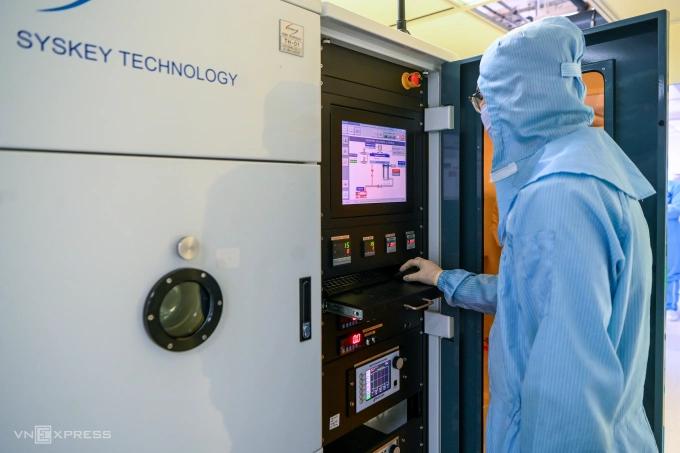They were so poor they could not afford international phone calls.
Twenty years later he signed a US$19 billion deal to sell WhatsApp to Facebook inside the same welfare office where he once stood in line for food stamps.
But his story is more than just a rags-to-riches tale.
It is proof of what is possible in an ecosystem that nurtures mastery; a system that offers open education, embraces trial and error, encourages creativity, and gives opportunities to anyone bold enough to step outside their comfort zone.
But it begs the question: Why do so many smart, hardworking, well-educated people spend their lives locked in a cycle of working, consuming and waiting for a paycheck, without ever daring to create value for themselves or others?
The U.S. became a hub for entrepreneurs not just because of its economic scale but because its education system encouraged curiosity and experimentation.
From a young age, students were taught to build real-world projects. Initiatives like Junior Achievement and high school investment clubs helped young people understand finance and nurture a founder’s mindset.
Israel, despite having a population of less than 10 million, boasts one of the highest startup densities in the world. This is partially due to mandatory military service, where youth learn leadership, resilience and decision-making under pressure, critical traits for entrepreneurship.
Singapore, though resource-poor, rose to become an economic powerhouse by investing heavily in entrepreneurship education.
Students learn “Innovation & Enterprise” from primary school and are encouraged to develop business plans. Government initiatives like JTC Launchpad provide infrastructure to incubate new ideas.
Estonia, a small Baltic nation, gave the world Skype. Children there learn programming from a young age and grow up with a tech-first mindset.
What these countries share is an educational philosophy, one that prepares citizens not just to apply for jobs, but to create them.

Nguyen Trung Kien, a PhD student from the faculty of physics, operates the multi-source thermal evaporation system inside a US$5-million semiconductor laboratory at the University of Science, Vietnam National University in Hanoi. Photo by VnExpress/Giang Huy
In Vietnam, universities like Fulbright, UEH, and RMIT have introduced courses in personal finance, innovation and entrepreneurship.
Some localities are piloting STEAM (Science, Technology, Engineering, Arts and Mathematics) education and practical learning in high schools.
These are positive steps, but remain fragmented; there’s still no cohesive strategy connecting high school to university or macro-level policies to classroom curriculums.
More critically, a deeply rooted “stability” mindset still dominates: Families and schools often prioritize safety and predictability, making young people afraid to take risks. Fear of failure, financial insecurity and the idea that “education is only for employment” suppress the potential of would-be entrepreneurs.
Meanwhile, essential skills like budgeting, building a business model and raising capital are rarely taught in classrooms.
According to the Ministry of Science and Technology, Vietnam had over 3,800 startups in 2023, but only 10% received funding. The main reasons? Poor pitching skills, weak business models and limited experience with fundraising.
But these are not innate flaws; they are symptoms of a gap in early education and exposure.
Of course, not everyone needs to start a company. A thriving economy depends on great employees, engineers, operators, managers who are creative, confident and mission-driven.
But whether someone becomes a founder or a team member, they need to be equipped with the mindset of ownership: knowing their worth, managing their money, making choices proactively, and daring to take the initiative.
To unlock this potential, Vietnam must reform its education system.
This means integrating courses like “entrepreneurship and personal finance” into general curriculums.
Schools should host practical challenges such as writing business plans and contests like Startup Wheel, or create opportunities for students to intern at local startups like Tiki, Haravan, or Axie Infinity. Vietnamese youth can create global impacts when given the right tools.
The government should also consider setting up startup investment funds for students, modeled after Singapore’s JTC Launchpad, to provide early-stage capital and mentorship.
To truly empower youths, society must also reframe its perception of failure.
Inspirational content, such as talk shows with creators like Nguyen Ha Dong of Flappy Bird, can help young people understand that failure is not shameful and in fact is necessary in any creative journey.
A country cannot thrive if its youth are limited to wage labor. But it also cannot prosper without skilled, passionate workers. The key is balance, and a healthy, sustainable economy needs both.
Education must lead the way, but not by forcing young people to choose between being an employee or an entrepreneur, but by giving them the confidence, skills and mindset to own their choices and chart their own paths.
*Dinh Hong Ky is a businessman.
